Podcast: Play in new window | Download (Duration: 29:06 — 20.1MB) | Embed
Subscribe: Apple Podcasts | Spotify | Amazon Music | Android | Pandora | iHeartRadio | JioSaavn | Podchaser | Gaana | Podcast Index | Email | TuneIn | Deezer | Anghami | RSS | More
 Dr. Matthew Bunson discusses the life, times and teachings of St. Anthony of Padua
Dr. Matthew Bunson discusses the life, times and teachings of St. Anthony of Padua
-
Born: August 15, 1195, Lisbon, Portugal
-
Died: June 13, 1231, Padua, Italy
-
Buried: Basilica of Saint Anthony of Padua, Padua, Italy
-
Parents: Vicente Martins , Teresa Pais Taveira
From Vatican.va, an excerpt from the teachings of Pope Benedict XVI
From the General Audience on St. Anthony of Padua
With his outstanding gifts of intelligence, balance, apostolic zeal and, primarily, mystic fervour, Anthony contributed significantly to the development of Franciscan spirituality.
In St Anthony’s teaching on prayer we perceive one of the specific traits of the Franciscan theology that he founded: namely the role assigned to divine love which enters into the sphere of the affections, of the will and of the heart, and which is also the source from which flows a spiritual knowledge that surpasses all other knowledge. In fact, it is in loving that we come to know.
Anthony writes further: “Charity is the soul of faith, it gives it life; without love, faith dies” (Sermones Dominicales et Festivi II, Messagero, Padua 1979, p. 37).
It is only the prayerful soul that can progress in spiritual life: this is the privileged object of St Anthony’s preaching. He is thoroughly familiar with the shortcomings of human nature, with our tendency to lapse into sin, which is why he continuously urges us to fight the inclination to avidity, pride and impurity; instead of practising the virtues of poverty and generosity, of humility and obedience, of chastity and of purity. At the beginning of the 13th century, in the context of the rebirth of the city and the flourishing of trade, the number of people who were insensitive to the needs of the poor increased. This is why on various occasions Anthony invites the faithful to think of the true riches, those of the heart, which make people good and merciful and permit them to lay up treasure in Heaven. “O rich people”, he urged them, “befriend… the poor, welcome them into your homes: it will subsequently be they who receive you in the eternal tabernacles in which is the beauty of peace, the confidence of security and the opulent tranquillity of eternal satiety” (ibid., p. 29).
Anthony, in the school of Francis, always put Christ at the centre of his life and thinking, of his action and of his preaching. This is another characteristic feature of Franciscan theology: Christocentrism. Franciscan theology willingly contemplates and invites others to contemplate the mysteries of the Lord’s humanity, the man Jesus, and in a special way the mystery of the Nativity: God who made himself a Child and gave himself into our hands, a mystery that gives rise to sentiments of love and gratitude for divine goodness.
For more visit Vatican.va
For more from Dr. Matthew Bunson check out his Discerning Hearts page
Dr. Matthew E. Bunson is a Register senior editor and a senior contributor to EWTN News. For the past 20 years, he has been active in the area of Catholic social communications and education, including writing, editing, and teaching on a variety of topics related to Church history, the papacy, the saints, and Catholic culture. He is faculty chair at Catholic Distance University, a senior fellow of the St. Paul Center for Biblical Theology, and the author or co-author of over 50 books including The Encyclopedia of Catholic History, The Pope Encyclopedia, We Have a Pope! Benedict XVI, The Saints Encyclopedia and best-selling biographies of St. Damien of Molokai and St. Kateri Tekakwitha.


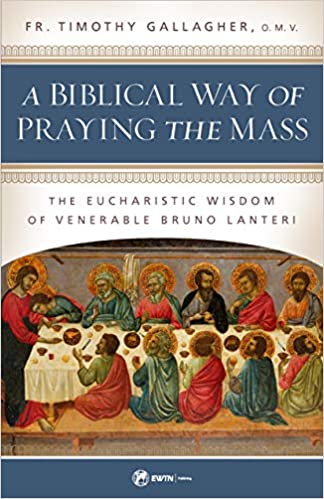

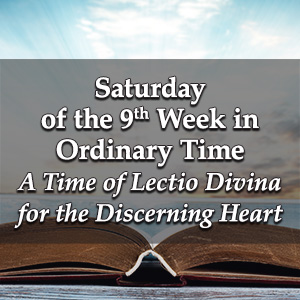 Saturday of the Ninth Week in Ordinary Time – A Time of Lectio Divina for the Discerning Heart Podcast
Saturday of the Ninth Week in Ordinary Time – A Time of Lectio Divina for the Discerning Heart Podcast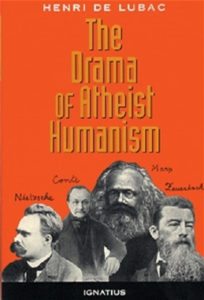 You can find the book
You can find the book 


 Friday of the Ninth Week in Ordinary Time – A Time of Lectio Divina for the Discerning Heart Podcast
Friday of the Ninth Week in Ordinary Time – A Time of Lectio Divina for the Discerning Heart Podcast
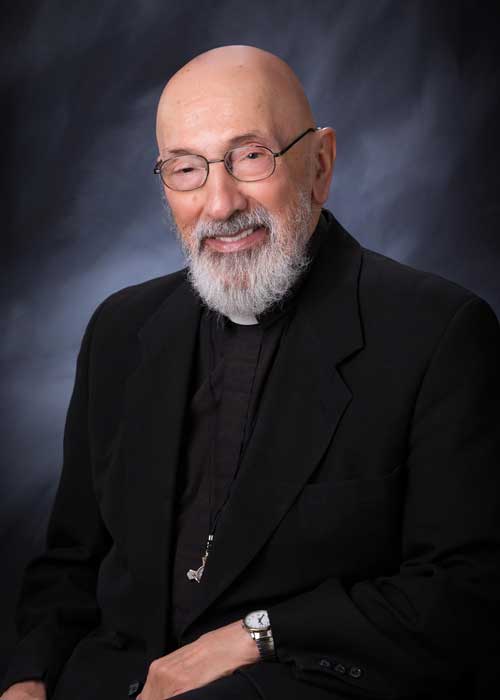 We begin a conversation with Msgr. Esseff about the darkness of our present age. Then he discusses the remedy…our relationship with Holy Trinity, and in particular, with the Father in Heaven.
We begin a conversation with Msgr. Esseff about the darkness of our present age. Then he discusses the remedy…our relationship with Holy Trinity, and in particular, with the Father in Heaven.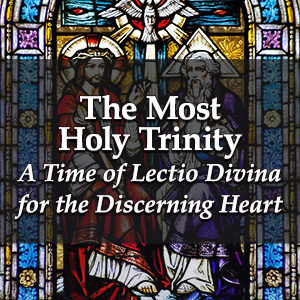 The Most Holy Trinity – A Time of Lectio Divina for the Discerning Heart Podcast
The Most Holy Trinity – A Time of Lectio Divina for the Discerning Heart Podcast